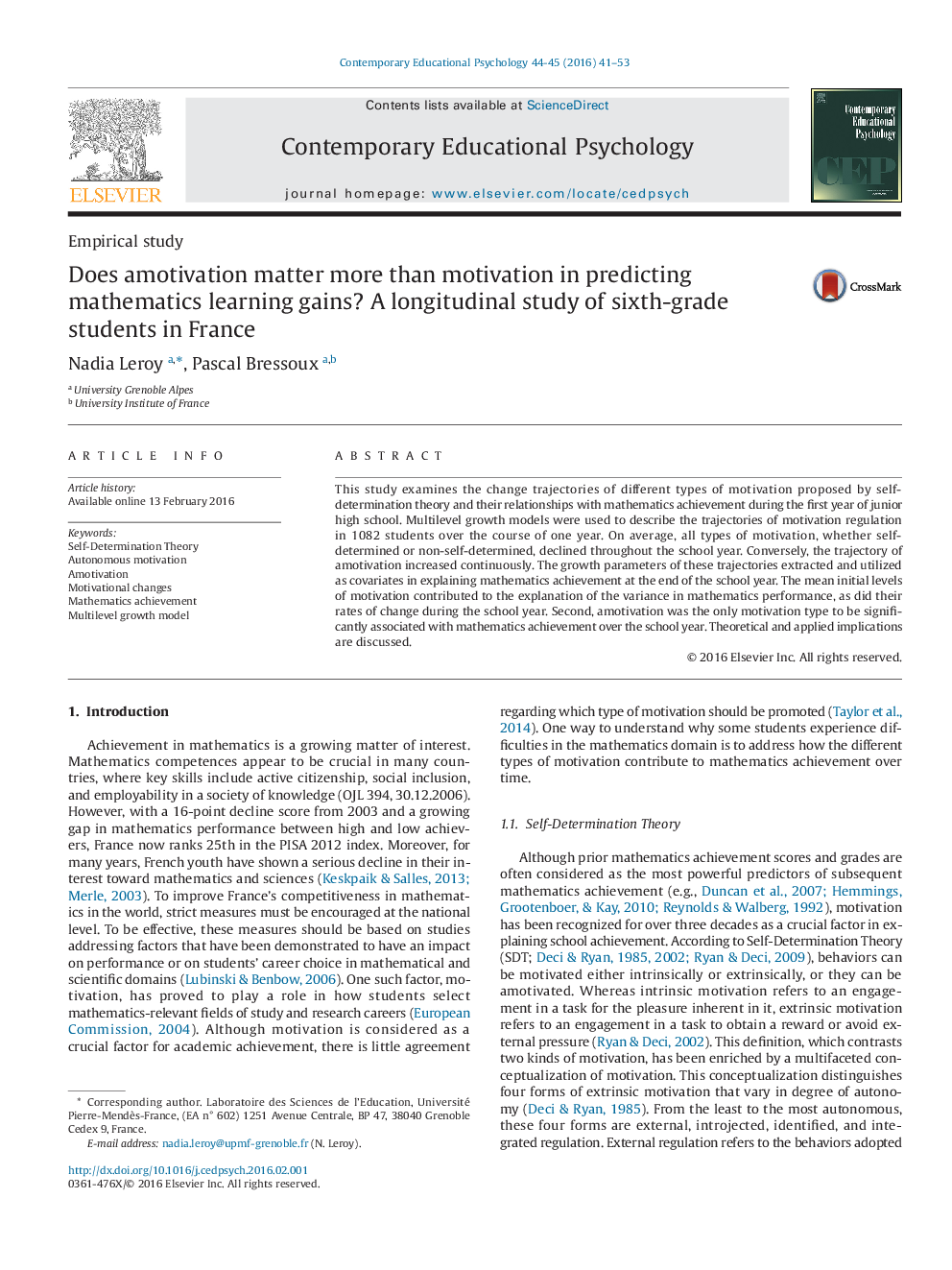| کد مقاله | کد نشریه | سال انتشار | مقاله انگلیسی | نسخه تمام متن |
|---|---|---|---|---|
| 352570 | 618600 | 2016 | 13 صفحه PDF | دانلود رایگان |
• Both self-determined and non-self-determined motivations decline.
• Conversely, amotivation increases.
• Mean motivational level and motivational rate of change influence math learning.
• Amotivation plays an important role in predicting mathematics achievement.
• Amotivation is the only motivation type significantly related to math achievement.
This study examines the change trajectories of different types of motivation proposed by self-determination theory and their relationships with mathematics achievement during the first year of junior high school. Multilevel growth models were used to describe the trajectories of motivation regulation in 1082 students over the course of one year. On average, all types of motivation, whether self-determined or non-self-determined, declined throughout the school year. Conversely, the trajectory of amotivation increased continuously. The growth parameters of these trajectories extracted and utilized as covariates in explaining mathematics achievement at the end of the school year. The mean initial levels of motivation contributed to the explanation of the variance in mathematics performance, as did their rates of change during the school year. Second, amotivation was the only motivation type to be significantly associated with mathematics achievement over the school year. Theoretical and applied implications are discussed.
Journal: Contemporary Educational Psychology - Volumes 44–45, January–April 2016, Pages 41–53
